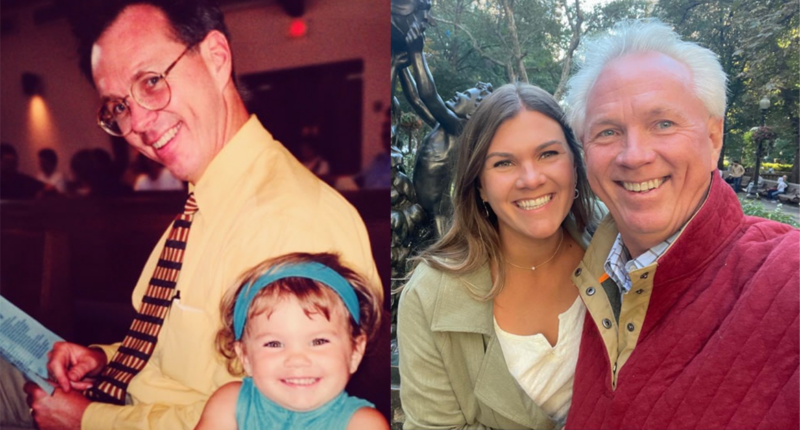LEADERSHIP
Elf on the Shelf and the Elusive Doctor’s Note

Don’t let the title fool you.
This is a workplace lesson on the power of communication and productivity.
In December, my 12-week old baby got sick.
It also happened to be my FIRST full week back to work. He hadn’t slept for three nights (which was unlike him). He was miserable and I wasn’t far behind.
After days of exhaustion and him coughing, I took Finn to the ER at 2AM. Four long hours later, it was determined he had Croup. We were sent on our way, with medicine in hand. I thought the hard part was over!
However, a few days later I found out that for Finn to be cleared to go back to daycare, I needed a doctor’s note saying he was negative for COVID. Unfortunately, the ER did not conduct a COVID test. So now we had to go to Urgent Care to get one completed.
It was negative. (Phew!)
Here’s where it gets hairy… For three days I called Urgent Care asking them to send the negative result to Finn’s doctor so he could get a note to go to daycare and I could work from home effectively again.
Three, loooong, unproductive days.
On day three was the first time I called the Urgent Care while Patrick was home. When I hung up, extremely frustrated with this seemingly simple task, he said, “you’re really struggling to get them to send the results. Why don’t you just drive over the paper result they gave me that day when we left?”
WHAT…..???
It turns out, Patrick had the information I needed the WHOLE time. THE WHOLE THREE DAYS. I asked why he didn’t tell me as he saw me very frustrated, and he said he thought I knew.
He thought that I knew. Thought?!?!?!
Ready to unload my wrath as only a sleep-deprived-mother-of-an-infant can do, I caught myself and realized there is a workplace lesson here. It made me think about all the times I coached individuals who were frustrated with their coworkers. They spend time telling me the problem to which I ask, “so did you tell them that?” Only to be met with silence, blank stares (or both) and a big “NO”.
I understand that having a crucial conversation is difficult, but that’s not even what I’m talking about here. What I am talking about is assuming (we all know what that does) that the other person knows just as much as we do, has access to all the same information, or understands the situation just like we do. And, honestly, this rarely is true.
Upon completing the forensic investigation of why Patrick and I had such a BIG miscommunication about the COVID test results, I realized a few things:
I was distracted while leaving urgent care. I probably was too busy taking cute pictures of my baby in his elf hat, honestly. I remember walking out to leave and stopping at the front desk for our ID and insurance card back. At the time, Patrick was confused at what I was doing as they had already been given back to him. Perhaps this is when he got the discharge paperwork too?
Patrick is very task oriented, has ridiculously long legs (he’s an entire foot taller than me), and is a very fast walker. When he is ready to leave a place, he is typically almost out the door before I pick up my purse – or even realize what has transpired around me. This was the case that day, too. He packed up the papers, grabbed the diaper bag, and was ready to roll.
I never requested his full attention. Never once when I complained did I have Patrick’s full attention. As I look back, I realize that every time I vented about it, he was busy making dinner or taking care of the baby or checking his email. He did not hear me and I assumed he did.
In talking about it later, Patrick had informed me that he THOUGHT I saw he put the discharge paperwork in the diaper bag. That he THOUGHT the information had to come straight from Urgent Care to the PCP. And that he THOUGHT I just didn’t want to drive the paperwork we had over to the PCP.
NONE of that was true.
How many times do you assume that your boss, co-worker, or employee has ALL of the same information as you?
That they know just as much as you do about a specific topic or the past history of your company?
How many times do you not understand what they are doing, are frustrated with them, and then later realize that they, rightfully so, truly just didn’t know the information that you had stored in your head but had not shared out loud?
And we go back to communication: Communication isn’t always about verbalizing your feelings appropriately, it can be about information-sharing. The better we are at information-sharing, the more effective we will be in our job and in our teams (and in our partnerships at home).
In this case, if the information would have been shared with me (OR if I would have been paying attention at Urgent Care, apparently).
I would have gotten the doctor’s note two days earlier.
I would have had two more productive days at work.
I would NOT have been stressed juggling calls, zoom meetings, emails while trying to be attentive to the needs of an infant. Work was not getting my full attention, nor was Finn.
How much more effective could you, or your team, be with better communication and information-sharing?
How much time have you already wasted?
What can you do moving forward?
In the end, we are never going to be perfect – but we can get better.
And that’s worth the work.
Need to talk through a communications issue? Let’s chat.
Ready to step up your leadership skills? Join me in the Lab! Learn more here…
Pictured is Finn, not feeling so well, dressed as The Elf on the Shelf. It’s no wonder I was distracted!
*******************************************************
You may also like…

BLOG | CUSTOMER
How Family Businesses Can Navigate Post-COVID Challenges
“In quiet and untroubled times, it seems to every administrator that it is only by his efforts that the whole population under his rule is kept going..."
Read More
BLOG | FAMILY DYNAMICS / GOVERNANCE
Becoming a Family Business: This Firm Lives What They Teach
You may know the man in the photo as Tom Garrity, Founder of Compass Point, a family business consulting firm in Southeastern PA, headquartered in the Lehigh Valley; I know him as my inspiration, mentor, confidante, tennis partner, and best of all – my dad. This blog marks...
Read More
BLOG | LEADERSHIP
Cracking The Culture Code for Business and Leadership Strategy
Discover how business and leadership intersect in Daniel Coyle's "The Culture Code," offering insights into building successful organizations. I recently asked the LinkedIn community what book most closely aligns with your leadership identity...
Read MoreWhere Family Businesses Come to Grow & Learn
At Compass Point, we make it easy to get insights, training, tools, and articles straight to your inbox and help family business owners and their team continue to grow, learn, and lead.


